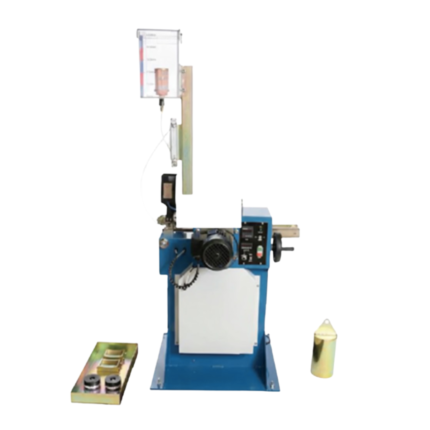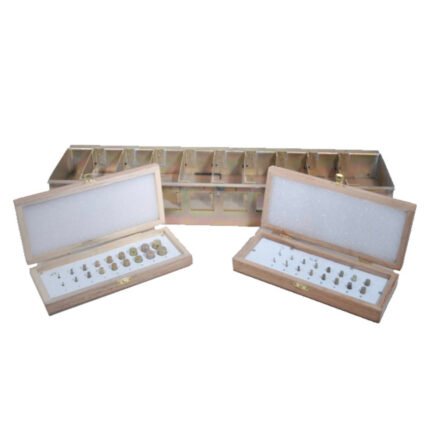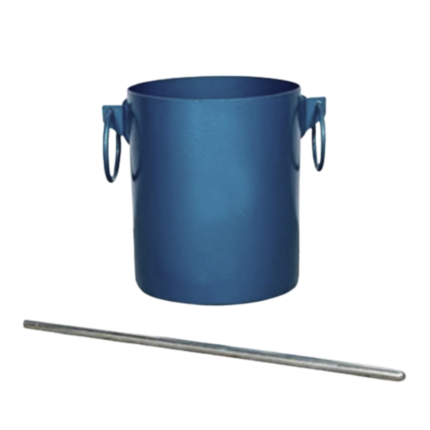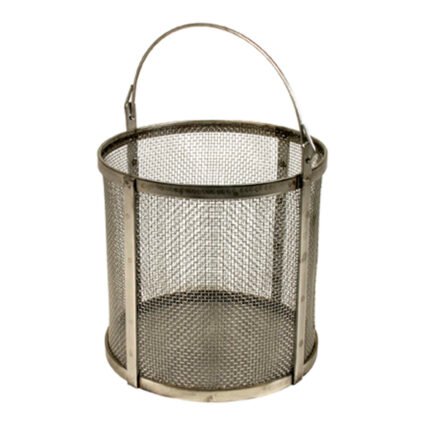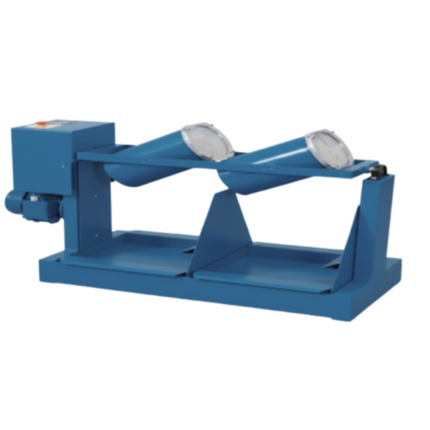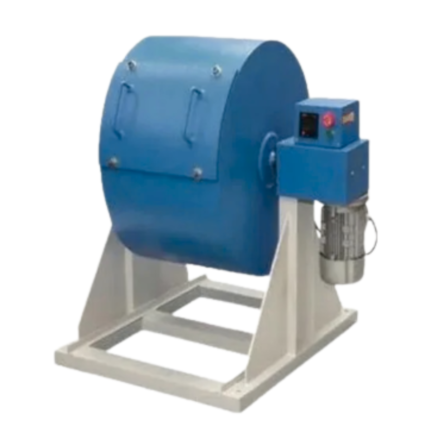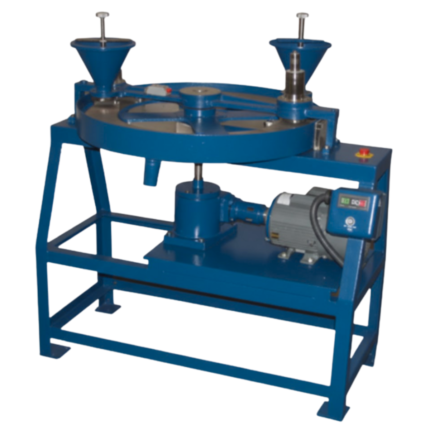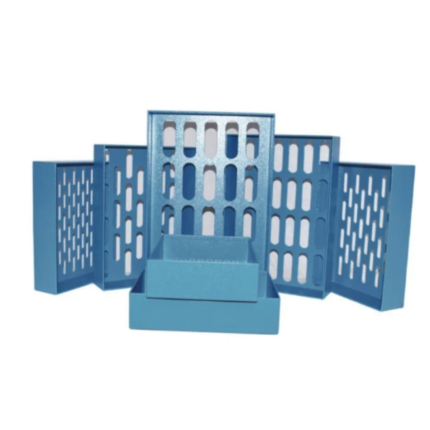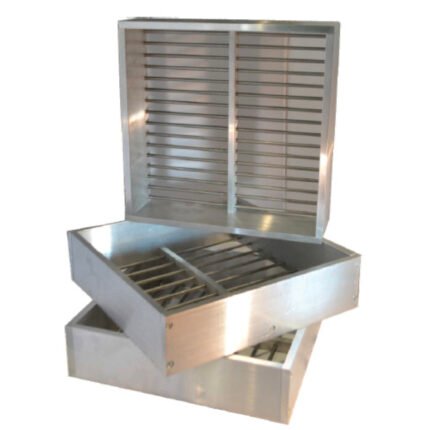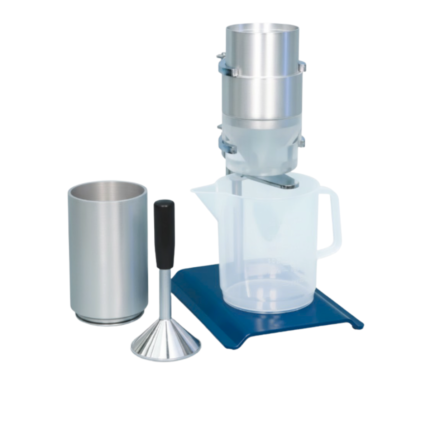
ACCELERATED POLISHING MACHINE AZA0984
Key Features
- Tests polished stone value (PSV) of road aggregates
- Conforms to ASTM D3319 and BS 812 Part 114
- Heavy-duty rotating disc with abrasive feed system
- Integrated water spray system to simulate wet road conditions
- Powder-coated steel body for corrosion resistance
AGGREGATE CRUSHING VALUE APPARATUS AZA0982
Key Features
- Measures crushing strength of coarse aggregates
- Conforms to IS:2386 (Part IV) and BS 812 standards
- Precision-machined steel cylinder and plunger
- Heavy-duty, corrosion-resistant construction
- Supplied with complete accessories for immediate testing
AGGREGATE IMPACT TESTER WITH BLOW COUNTER AZA0983
The AZA0983 Aggregate Impact Tester with Digital Blow Counter is a precision-engineered laboratory apparatus used to determine the Aggregate Impact Value (AIV) of coarse aggregates. It is designed to evaluate the toughness and resistance of aggregates used in road pavements, highways, and structural concrete.
This equipment is manufactured for durability, accuracy, and long service life, and is fully compliant with IS:2386 (Part IV) and BS 812 standards.
Key Features
-
Determines Aggregate Impact Value (AIV) for pavement materials
-
Integrated digital blow counter for accurate strike counting
-
Conforms to IS:2386 (Part IV) and BS 812
-
Heavy-duty, vibration-resistant frame
-
Cylindrical steel cup and standard impact hammer
AVERAGE LEAST DIMENSION AZA0976
Key Features
- Measures flakiness index of coarse aggregates
- Fully compliant with IS 2386 (Part I) standards
- Precision steel frame with clearly labeled slots
- Easy-to-use, manual operation for rapid testing
- Heavy-duty, corrosion-resistant construction
- Suitable for laboratory and field environments
CYLINDRICAL MEASURES AZA0977
The AZA0977 Cylindrical Measures are precision laboratory containers designed for determining the bulk density (unit weight) and void ratio of fine and coarse aggregates. These measurements are essential for quality control in concrete mix design, highway construction, and geotechnical investigations. Manufactured by Azalab, these measures fully comply with IS 2386 (Part III), ASTM C29, and BS 812 standards.
Key Features
-
Used for measuring bulk density and void ratio of aggregates
-
Available in standard capacities: 3L, 5L, and 15L
-
Heavy-duty mild steel / aluminum construction
-
Smooth, accurately machined internal surfaces
-
Supplied with tamping rod and leveling accessories
-
Corrosion-resistant, long-life surface finish
-
Easy-grip handles for portability
DENSITY BASKET AZA0978
Key Features
- Used for specific gravity and water absorption tests
- Made from high-quality stainless steel mesh
- Equipped with a strong welded suspension hook
- Corrosion-resistant, rust-free and long-lasting
- Smooth welded edges to prevent sample damage
- Standardized mesh aperture for proper water flow
DEVEL ATTRITION TESTER AZA0989
Key Applications
- Road and highway material testing
- Railway ballast quality assessment
- Concrete mix design durability testing
- Civil engineering research & academic laboratories
DIGITAL LOS ANGLES ABRASION TESTING MACHINE AZA0987
Key Functions
- Determines aggregate abrasion resistance under controlled test conditions
- Simulates real-life impact and wear suffered by aggregates
- Provides precise digital RPM and time control for repeatability
- Suitable for routine quality control and research laboratories
DORRY ABRASION TESTING MACHINE AZA0988
Key Functions
- Evaluates abrasion and wear resistance of aggregates
- Simulates real-life mechanical rubbing and surface wear
- Ensures quality control for construction materials
- Supports research and teaching in civil engineering labs
FLAKINESS SIEVE SET AZA0973
The AZA0973 Flakiness Sieve Set is a laboratory-grade testing instrument designed to determine the flakiness index of coarse aggregates. It is an essential tool for evaluating aggregate particle shape, helping ensure strength, durability, and performance of concrete and road construction materials. This system is manufactured for full compliance with IS 2386 (Part I) and is widely used in civil engineering laboratories and construction quality control sites.
Key Features
-
Used for determining flakiness index of coarse aggregates
-
Fully compliant with IS 2386 (Part I) standards
-
Precision-machined slotted gauges for multiple aggregate sizes
-
Heavy-duty stainless steel / powder-coated steel construction
-
Corrosion-resistant, long service life
-
Portable and easy to use in lab and field environments
GRID SIEVES AZA0972
The AZA0972 Grid Sieves are heavy-duty screening tools designed for rapid particle size classification of coarse soils and aggregates. These sieves are ideal for quick, visual separation of gravel, crushed stone, and coarse sands in civil engineering, geotechnical, and construction materials laboratories. Their rugged construction makes them suitable for both laboratory and field applications.
Key Features
-
Designed for fast classification of coarse particles
-
Suitable for soil and aggregate testing
-
Heavy-duty stainless steel / galvanized steel construction
-
Precision-welded square or rectangular grid openings
-
Corrosion-resistant, abrasion-resistant long life design
-
Compatible with standard manual and mechanical sieve shakers
INDEX APPARATUS (FLOW COEFFICIENT OF FINE AGGREGATES) AZA0975
The AZA0975 Flow Coefficient Index Apparatus is a precision laboratory instrument designed to measure the flow coefficient of fine aggregates, such as natural sand and crushed sand. This test helps evaluate workability, particle shape, and grading, which are critical factors in concrete and mortar mix performance. The apparatus is manufactured in compliance with IS 2386 (Part I) and is widely used in civil engineering laboratories and construction quality control departments.
Key Features
-
Measures flow coefficient of fine aggregates
-
Fully compliant with IS 2386 (Part I)
-
Evaluates workability and particle shape characteristics
-
Supplied as a complete set: funnel, stand, cylinder, and base plate
-
Precision-machined components for consistent results
-
Corrosion-resistant, durable construction
-
Easy manual operation for laboratory and field use
Aggregate is a component of a composite material used to resist compressive stress and provide bulk to the composite material. For efficient filling, aggregate should be much smaller than the finished item, but have a wide variety of sizes.
It is vastly used in most combination of construction material such as concrete and asphalt technology to which aggregates may either be specified or designed to suit a particular engineering requirement while not suiting another.
The properties of aggregates can vary and hence affect the final construction material.
Therefore it is important to test the different parameters such as resistance to polishing, particle size, shape and texture, relative, bulk density, crushing value,
impact value, organic impurities, compacted densities, specific gravity, soundness and abrasion resistance.

 Rock
Rock Aggregate
Aggregate Cement
Cement Concrete
Concrete Soil
Soil Steel
Steel Bitumen/Asphalt
Bitumen/Asphalt Security Survey Equipment
Security Survey Equipment General Items
General Items